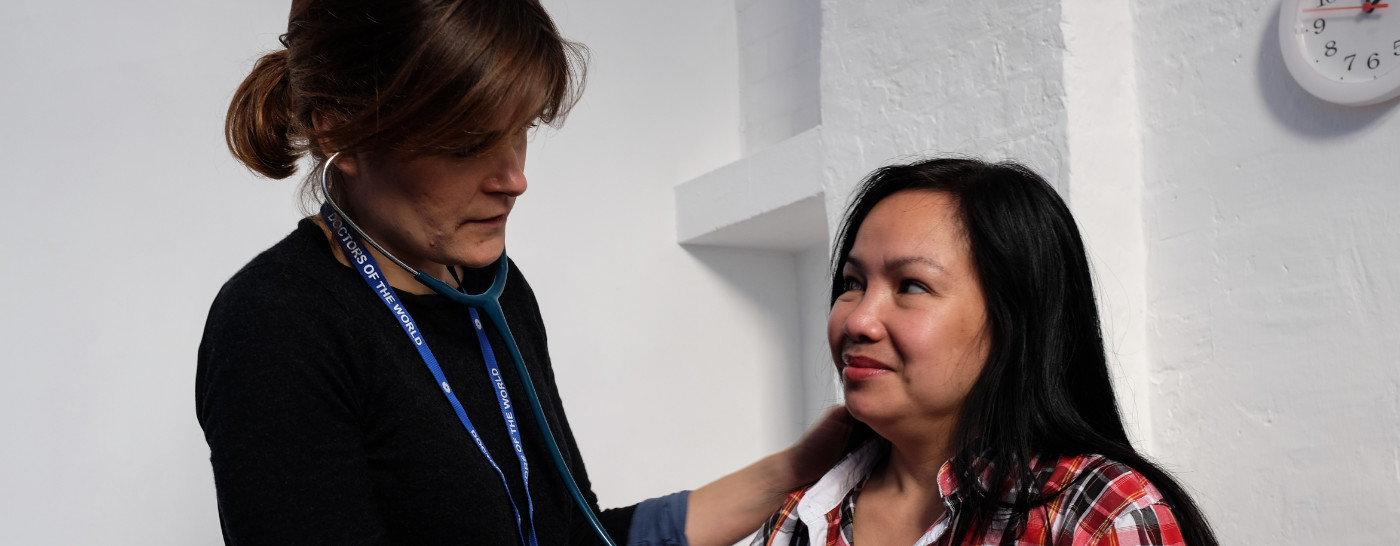UK’s human rights regulator calls for “clear separation” between immigration policies and healthcare
Published 29th November 2018
Drawing on research coproduced with Doctor of the World and Imperial College London, the Equality and Human Rights Commission (EHRC) called on the Government to stop sharing NHS patient data with the Home Office and to end the policy of charging refused asylum seekers exorbitantly high costs to access healthcare in England. The regulator argued that a separation between healthcare and immigration enforcement was needed in order to uphold the UK’s human rights obligations.
Rebecca Hilsenrath, Chief Executive of the Equality and Human Rights Commission, said:
“People seeking and refused asylum are likely to have particular health needs because of past distressing experiences and the traumatic effects of fleeing to a different country. It’s therefore crucial that they are able to fully and easily access healthcare and that their rights are protected by keeping healthcare separate from immigration enforcement. This is just about common humanity.”
Dr Katherine Taylor, a GP and health advisor for Doctors of the World, said:
“Everybody within society needs to have access to healthcare. It’s not just a matter of human rights and dignity, it’s basic common sense. Pregnant women need to see a midwife, children need vaccinations and people with chronic conditions need a GP. We know that for the NHS it is cheaper and less resource intensive to see patients early on, to provide preventative healthcare and treat chronic diseases before people develop complications. Policies that prevent people from accessing NHS services just cause more problems in the long term.”
The research, which looked at the experiences of people who have been through the asylum system, showed NHS charging regulations and the policy of sharing NHS patients’ data with the Home Office stopped people getting the healthcare they need and undermined trust in health professionals and services.
A woman in London who had been refused asylum said: “I still have that fear they might contact immigration and they’ll come get me … It’s not just a fear about going to a surgery – it’s about being traumatised … When I found out I was pregnant, I was really frightened. I had no money. I decided I would keep my pregnancy secret and get an abortion.”
Asylum dispersal policy – the policy of moving asylum seekers outside of London and South East England – was found to interrupt and delay access to healthcare, causing particular problems for pregnant women or people with complex health needs. One individual was relocated shortly after having extensive heart surgery, despite objections from her cardiologist.
Many asylum seekers are unable to afford the costs associated with healthcare such as travel and prescriptions. For example, a pregnant asylum seeker who needed frequent hospital check-ups faced travel costs nearing £20, whilst another individual spoke of only being able to afford food or prescription costs: “My husband often didn’t take his medication. Because he didn’t want to swap it for food. I think a lot of his conditions now are in a really bad state.”
Disabled people, people with mental health conditions, and women, including pregnant women, were more severely impacted by these barriers
The EHRC also recommended that:
- all women have free access to pregnancy and maternity services, and all family planning services
- asylum seekers right to work is extended or that Home Office financial support is increased.
The Equality and Human Rights Commission is the regulatory body responsible for promoting, monitoring and enforcing equality and human rights legislation in Great Britain and is recognised by the United Nations as a National Human Rights Institution.
